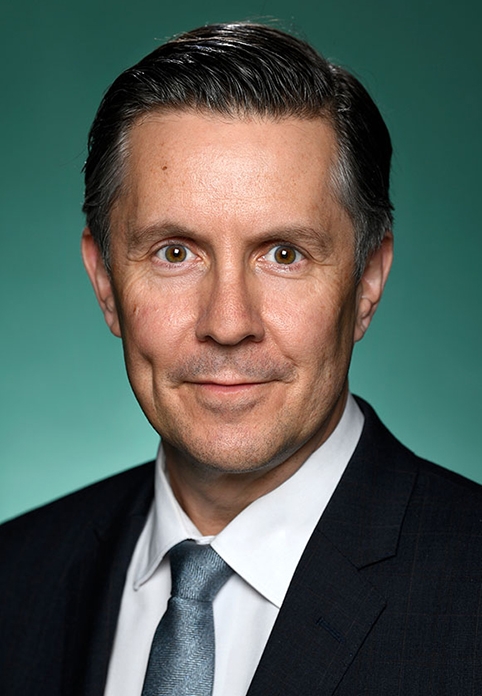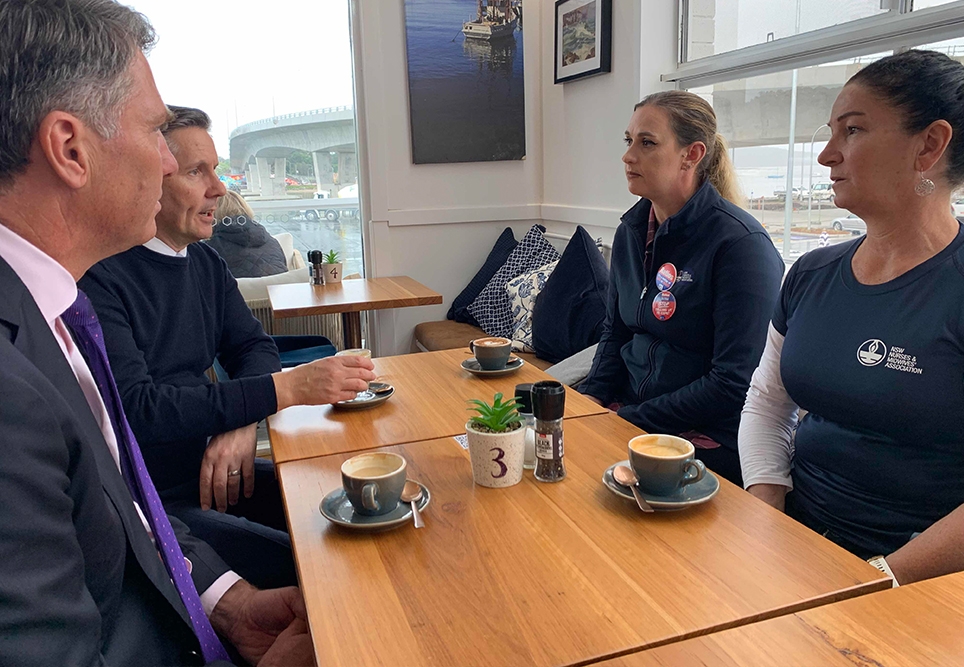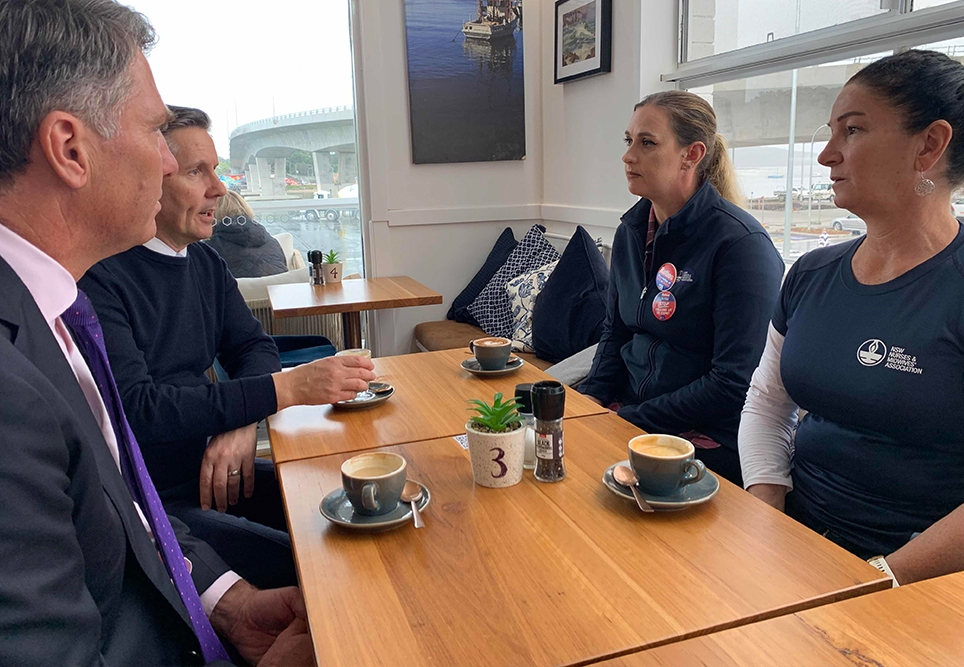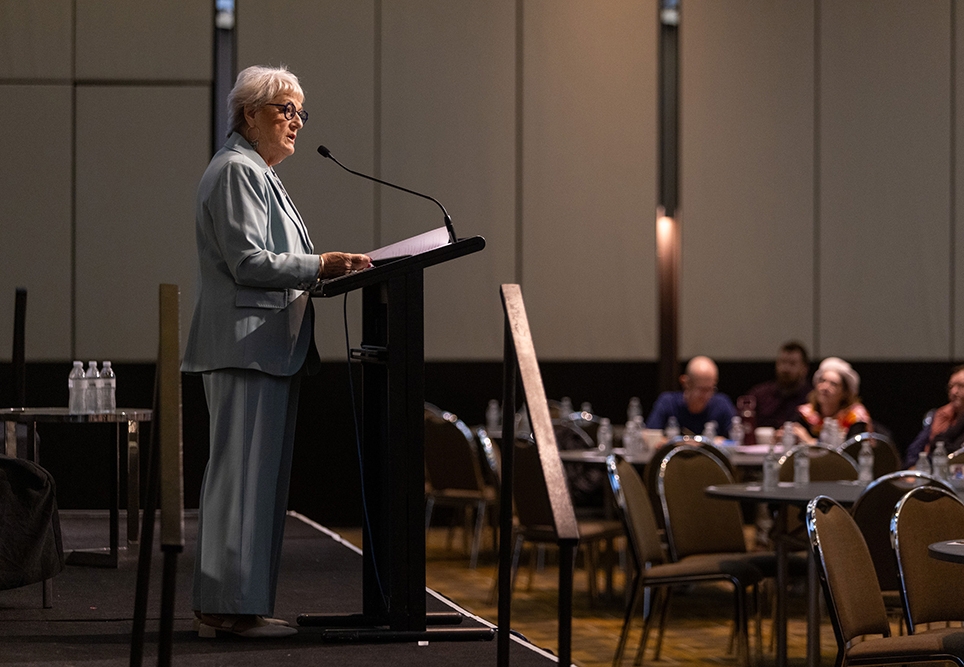
CRANAplus: What do you identify as the most significant challenges facing the rural and remote area nursing workforce? How will the Government work with peak industry organisations to address these challenges?
The Hon Mark Butler MP: Nurses are the lifeblood of our health system and have endured two years of the most difficult conditions as they have continued to care for patients during the pandemic.
I met with many of these nurses over the last few years, including in regional and remote areas. Two of the nurses I met were Samantha and Georgie, working on the NSW South Coast. They were clear about their challenges, working through fires, floods and the pandemic, and were fighting for better health care services for their community.
The Morrison Government did not invest in our health workforce, particularly nurses. The Albanese Labor Government will work with key stakeholders including nursing peaks, employers and state and territory governments to attract, support and retain nurses, particularly in rural and remote areas.
As part of that work we are developing a National Nursing Workforce Strategy (the Strategy) and implementing the National Aboriginal and Torres Strait Islander Health Workforce Strategic Framework and Implementation Plan 2021–2031. The development of the Strategy will include extensive consultation with stakeholders and be guided by the Nursing and Midwifery Strategic Reference Group, which includes CRANAplus, and other key rural and remote stakeholders.
CRANAplus: A sustainable, adequately staffed remote area nursing work- force would support continuity of care and improved health outcomes. But it can be challenging for nurses to find a defined pathway from metro to rural to remote. Do you recognise a need for a sustainable remote area nurse pathway and if so, how will the Government support this?
The Hon Mark Butler MP: Nurses should be able to more easily move from metropolitan roles into rural and remote roles.
This issue will be addressed as part of the National Nursing Workforce Strategy – the crafting of which, and consultation, is currently underway.
Work is also underway on the development of a Nurse Practitioner 10 Year Plan. The Plan will set out actions to address challenges and barriers facing nurse practitioners which will promote workforce sustainability in primary health care.
Rural and remote nurse practitioners are a key part of that workforce.
The Government has commissioned a nursing workforce Supply and Demand study to provide evidence to assist in making appropriate policy and funding decisions. This is expected to be published in the second half of this year.

CRANAplus: Remote health professionals often have significant concerns for their safety and security. Identified safety risks including physical assault, verbal abuse, bullying and harassment. Staff accommodation, clinic facilities, and communication systems are often felt to be inadequate. There’s a call for widespread improvements. How can this be achieved?
The Hon Mark Butler MP: The Albanese Government recognises nurses and midwives are reporting increased fatigue and burnout.
That’s why during the recent election campaign, I announced the National Nurse and Midwife Health Service would be rolled out across Australia.
The service will provide free, confidential and independent advice, support, information, treatment and specialist referrals for nurses, midwives and students. The local services will be modelled on the Nursing and Midwifery Health Program Victoria (NMHPV) and is expected to be delivered in conjunction with other programs such as the CRANAplus Bush Support Line.
The safety and security of the nursing workforce, including in rural and remote areas, is a major concern. The Albanese Government is working with stakeholders including state and territory governments to support and promote safe working environments across the health sector.
CRANAplus: People living in remote Australia experience poorer health outcomes and higher rates of preventable disease than their urban counterparts. What role can nurses play in addressing this inequality? Do you see opportunities for them to be empowered to have even more of an impact?
The Hon Mark Butler MP: I recognise nurses are the frontline of our health services and play a critical role in improving the health and wellbeing of their patients through the care, education and awareness they provide for patients. This is particularly true for those in rural and remote areas.
Nurses and nurse practitioners are supported with a range of tailored programs to empower the nursing workforce through team-based models of care. These initiatives build nurse capability and capacity to deliver preventative care so Australians can keep healthy and well. These include the:
1. Nursing in Primary Health Care Program
2. Training and Professional Support for the Remote Health Workforce Program
3. Workforce Incentive Program (WIP) –Practice Stream.
The Government also funds the Congress of Aboriginal and Torres Strait Islander Nurses and Midwives (CATSINaM) to support and develop the growing First Nations nursing and midwifery workforce to better meet the needs of First Nations people.



